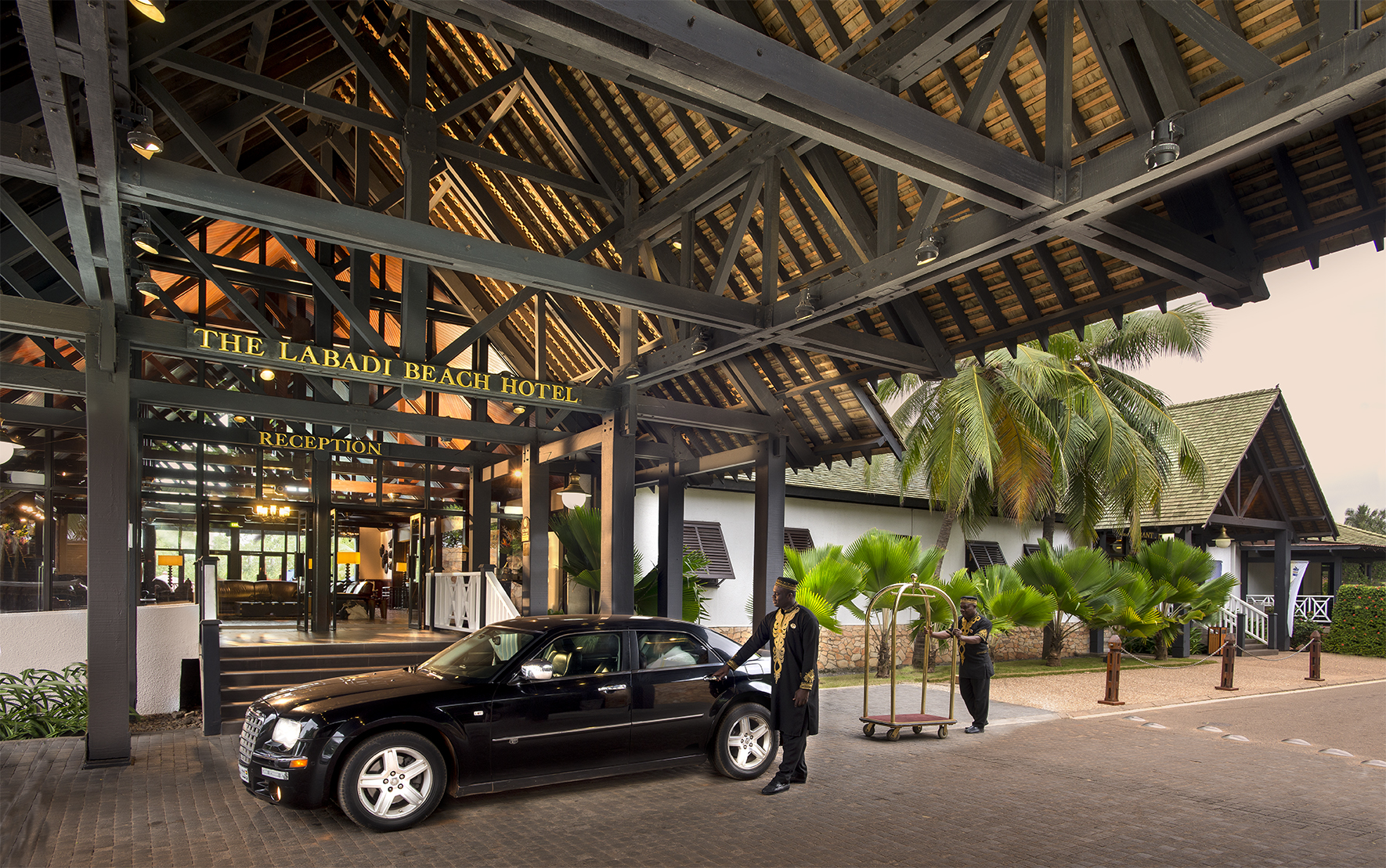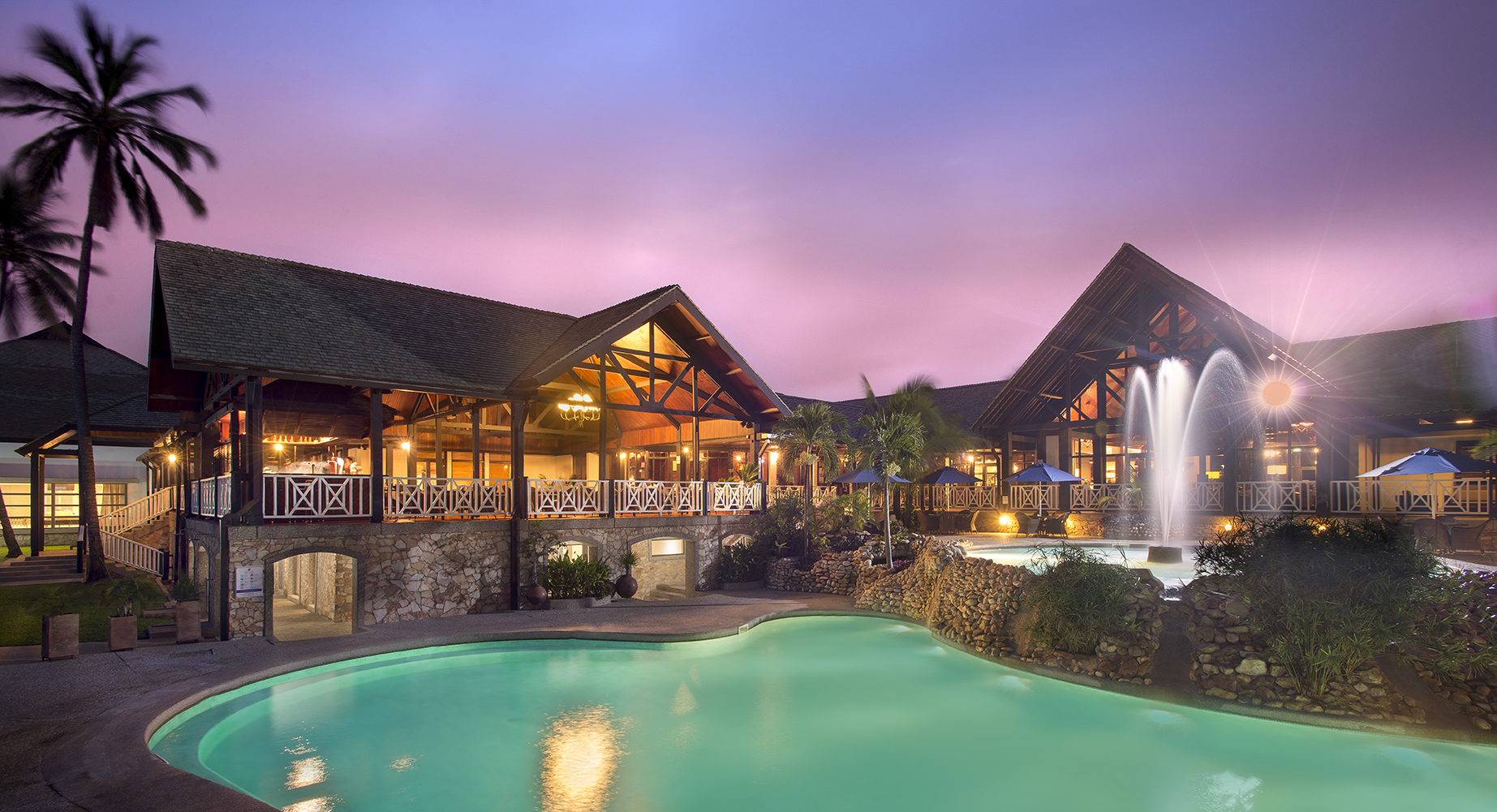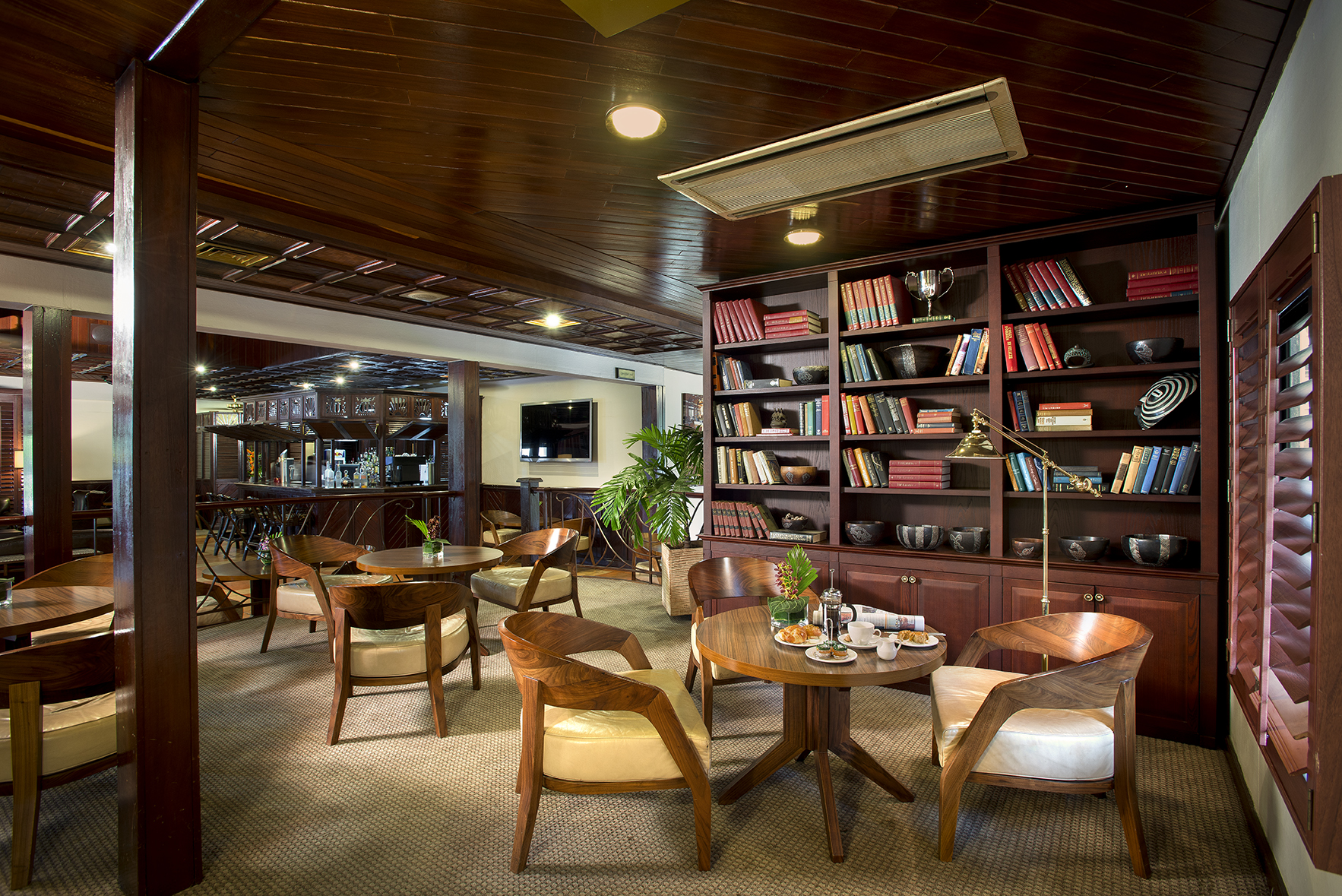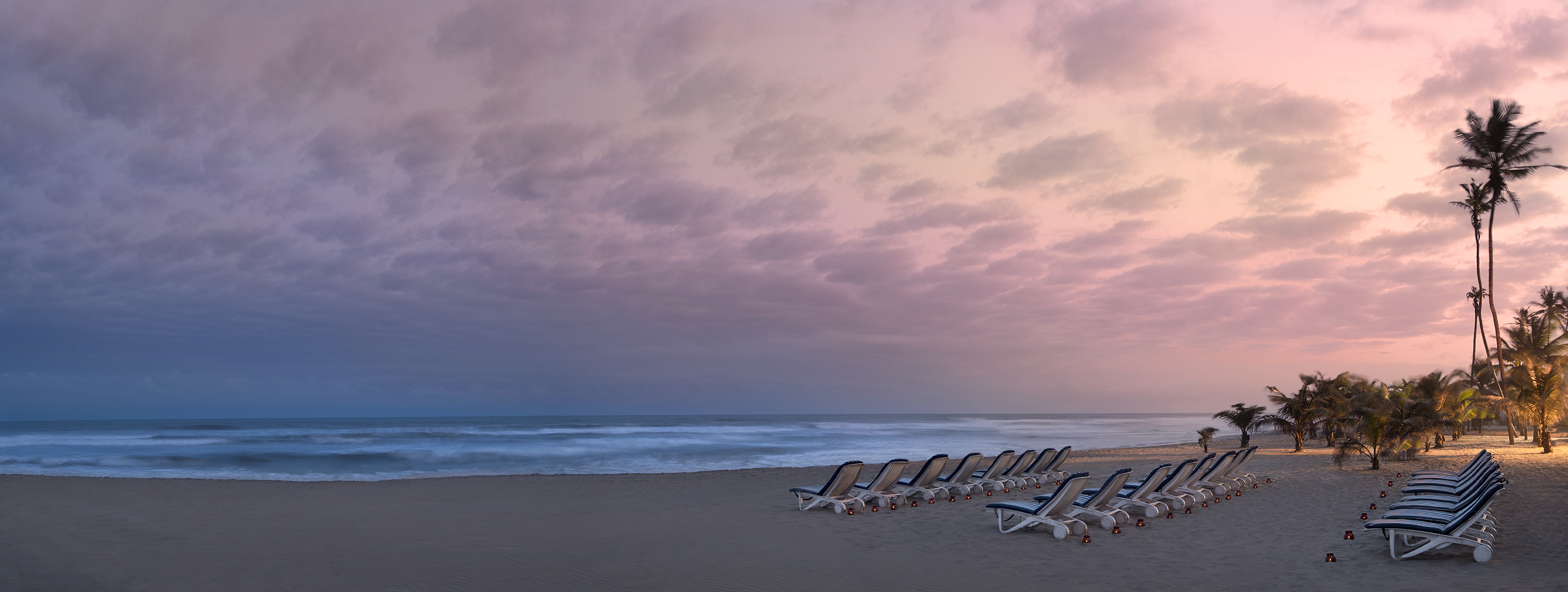GHANA GOES FOR GOLD
The South African Airways flight attendant walks up to me with brisk, confident steps. She checks my seat number, checks her manifest, and checks my seat number again.
“Eugene?” she asks. I nod. “Would you like to follow me, sir?”
Her voice is almost a whisper, like we’re discussing the top secret details for my first mission as a spy. I ask if I should bring my carry-on bag. “Yes,” she says, unable to suppress her smile. I can’t suppress my smile either.
And so begins my journey to the front of the plane. It’s goodbye to the small, bespectacled guy next to me, already taking a nap even though we only boarded a few minutes ago. And it’s hello to the ebullient businessman in all-black traditional clothes, a short moustache crowning his striking teeth. He has a phone in each hand: one for texting and the other for talking.
As I make myself comfortable in the full-recline seats of Business Class, I can’t help but draw parallels between my journey forward and that of my destination: Ghana, a country that first becomes visible to me as a faint sliver of coastline through the grey, hazy air.

In the 1980s, after a decade of economic decline, Ghana entered an International Monetary Fund programme to turn its economy around. Fast-forward to 2010 and it was declared a lower middle income country. Its economy is now one of the top ten in Africa, with GDP growth of 7.6% in 2013 and Sub-Saharan Africa’s second best performing stock exchange that year.
“Sometimes you’ll get guys walking around all day with a bottle of Hennessy cognac in one hand and Moët champagne in the other,” says Adrian Landry, General Manager of the Labadi Beach Hotel. “Not because they want to drink it, but just because they want to show other people that they can.”
Where is all this money coming from? Like many African countries, one of Ghana’s top exports (besides footballers) is natural resources. As Africa’s second largest gold producer and tenth largest in the world, the precious metal accounts for over 90% of the country’s mineral output and earned the nation around $3.8 billion in 2014. The country also has mineral resources in the form of diamonds, manganese, and bauxite, but their potential is yet to be fully tapped.
Another key output is oil, of which Ghana has the continent’s sixth largest reserves. It’s estimated that the Jubilee Oilfield, discovered in 2007, could contain up to three billion barrels, which is around half of what the country is believed to have in total. And even with the fall in global oil prices, the Finance Ministry reported revenues of around a quarter of a billion US dollars in the first seven months of 2015.

Despite the temptation for cronyism and other acts of plunder, the Transparency International Corruption Perception Index of 2015 ranked Ghana as the seventh least corrupt country in Africa. The Fragile States Index of 2016 also ranked Ghana as sixth least fragile country on the continent (after Mauritius, Seychelles, Botswana, South Africa, and Namibia), with peaceful transitions of power from one political party to another, as well as a recent increase in police visibility leading to the reduction in many forms of crime.
“Visitors can’t come into the country and try to show people how things are done,” Landry says. “The locals are educated and have travelled around the world.”
Indeed, the World Bank reported primary school enrolment at 89% in 2014, while UNESCO reported total literacy at 77% in 2015. No doubt this is thanks to the government spending up to 40% of its budget in the last decade to offer free and compulsory education – parents can be jailed for not sending their children to school – for public primary and junior high schools, as well as subsidies for senior high schools. It also helps that teaching is done in English, the country’s official language, even though there are several other tongues among dozens of ethnic groups.
As a result, the country went from having only the University of Ghana (where former UN Secretary General Kofi Annan has been chancellor since 2008) at the time of independence in 1957, to nine national public universities and several accredited private ones. Top international colleges, including Harvard, even have exchange programmes with schools in Ghana, while New York University has a campus in the capital city of Accra.
Another advanced industry is healthcare. Although the country remains a risk area for malaria, it escaped the Ebola epidemic that plagued nearby Liberia, Guinea, and Sierra Leone. The country, with malnutrition rate of only 1% and HIV infection at even less than this amount, also has a universal healthcare system that Bill Gates described as the most successful in Africa.

Still, challenges remain. Although improvements in public sector remuneration have seen some of the country’s educated citizens working for the government, the country’s minimum wage remains at eight cedis (approximately $2) a day. Indeed, all it takes is a drive through Cantonments (a leafy and upmarket suburb) and a contrasting one through Bukom (where people cook and wash in the streets when they aren’t training to become famous boxers) to realise that while many are haves, many are have-nots. (“Some areas of the city used to be so exclusive that even mosquitos from poor places dared not enter them!” our tour guide joked.)
Similarly, while around 90% of the country’s citizens have access to improved water sources (up from 56% in 1990 according to the World Health Organisation and UNICEF), just under two-thirds had access to electricity in 2012. The government plans to build a nuclear power plant to support its hydroelectric dams and other means of generating capacity. In the meantime power cuts are common, which is why, during a brief blackout at the South African High Commission, dinner guests quipped that Eskom, the beleaguered national supplier, had followed us all the way to what was technically local soil.
Another challenge relates to property. A report from the International Communications Agency estimates that the demand for residential property in the Accra-Tema metropolis, home of swanky developments like the colourful Villaggio Vista apartments, will amount to 150,000 units a year. Because the country’s demand grows at over 200,000 units a year (and current production averages only 70,000 units annually), the accumulated shortfall is already at around three-quarters of a million housing units. As a result, the government is in the advanced stages of establishing a land bank that will help investors with land acquisition, and already offers real estate companies that partner with it a tax holiday of several years.

Despite the challenges, the country remains optimistic. Established with the support of the World Bank, the Ghana Investment Advisory Council plays a key role in shaping government policy aimed at creating and enabling the country’s investment environment.
The government has a bold initiative known as “Ghana Vision 2020”, an economic plan that sees it as the first African nation (excluding South Africa) to become a developed country between 2020 and 2029 and newly industrialised between 2030 and 2039. There are also plans, notwithstanding major delays, to build the aptly named Hope City, a technology park expected to cost around $10 billion and have one of its towers as the tallest building in Africa.
“There’s a sense of Ubuntu,” Landry says. “That’s why Africa is like a diamond. The more you cut it and the more facets you show, the more it will shine.”
Eugene Yiga travelled to Ghana as a guest of:
- South African Airways, which now offers direct flights from Accra to Washington, D.C. (call +27 (0)11 978 1111, email reservationsjnb@flysaa.com, or visit www.flysaa.com)
- The Labadi Beach Hotel, one of two dozen African properties from Legacy Hotels and Resorts (call +27 (0)11 806 6888, email hotels@legacyhotels.co.za, or visit www.legacyhotels.co.za)











